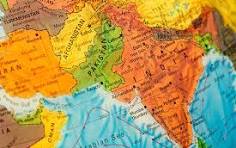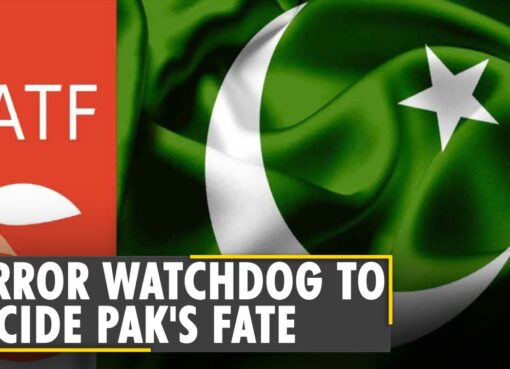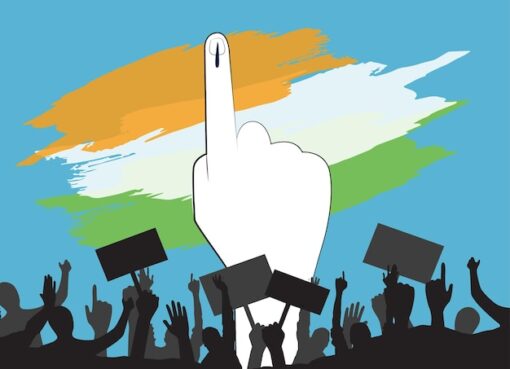What may be important is that they now appear to understand India’s security concerns and do all that is needed to be done to assuage those concerns
by Prasad Nallapati*
China’s charm offensive has lured many gullible third world countries to dance to its tunes but they are slowly recognizing the damage that it caused to their economic stability. They are in a corrective mode. The Indian sub-continent is no different.
Sri Lanka, which is the first to be drawn into China’s `debt trap’, has gone through its worst nightmare of financial crisis two years ago that brought it to the brink of bankruptcy. India’s timely assistance to the tune of $ 4 billion, while China dragged its feet, helped in stabilizing its economy.
Maldives’ Reconciliation with India
It is now the turn of Maldives. It is staring at a debt default as its foreign exchange reserves have dropped to $440m, just enough for one and half months of imports.
Global agency Moody’s downgraded the Maldives’ credit rating last month as its “default risks have risen materially.” It said its foreign “reserves remain significantly below the government’s external debt service of around $600m in 2025 and over $ 1 bn in 2026.”
President Mohamed Muizzu’s ongoing five day reconciliatory visit (Oct 7-11) to India comes in this backdrop.
He rode to power in November last with “India Out” sloganeering. He chose to travel to Turkey and China first unlike his predecessors who visited New Delhi first after being elected. Muizzu booted out a small Indian military contingent manning coastguard helicopter service and signed a `defence pact’ with China.
He even wanted to reduce dependency on Indian tourism and encouraged the Chinese to send more tourists to his country.
However, with its finances nosediving, Maldives soon realized that its attempts to break with India have serious economic consequences. Hence, the rush for the reconciliation.
Muizzu and Prime Minister Modi signed a currency swap agreement to the tune of $400 million to help Male overcome the financial crisis. India agreed to give an additional support of $360 million. The State Bank of India has also extended vital budgetary support with the rollover of a $50 million Treasury Bills for another year.
They jointly inaugurated the new runway built with Indian assistance at the Hanimadhoo International airport. India also handed over 700 social housing units to the Maldives built under EXIM Bank’s buyer’s credit facilities. Modi has also offered to expedite the Greater Male Connectivity Project and support the development of a commercial port in Thilafushi.
While thanking India for its generous support, Muizzu stated that India is the largest tourism source market for Maldives and expressed hope to recover part of it that was lost due to the disparaging comments by his cabinet colleagues against Modi.
The boycott of Maldives by Indian tourists cost it dearly with a sharp decline in its revenues. Indian destination marriages had been a financial bonanza for Maldives which they recklessly rocked.
Muizzu has now assured New Delhi that his country will never take any action that could in any way compromise India’s security.
India-Sri Lanka Ties Strengthen
Sri Lanka’s newly elected President Dissanayake has also reiterated that his country’s territory would never be used in any manner inimical to India’s security interests. He gave this assurance when visiting External Affairs Minister Jaishankar called on him in Colombo last Friday.
India has earlier expressed serious concerns to both Sri Lanka and Maldives over frequent visits of China’s research vessels to the ports of the two countries ostensibly for refueling but have more inimical military objectives.
The previous Wickremesinghe administration had instituted a one-year moratorium on the use of Sri Lanka’s ports by research vessels from all countries, which is scheduled to end later this year.
During his day long visit, Jaishankar has held wide ranging discussions with the President and his top cabinet colleagues on ways to further help the island nation to overcome its financial difficulties.
The Minister conveyed India’s offer to convert the seven completed Lines of Credit worth $20 million into a grant and also foot the bill for the modernization of the Kankesanthurai port in Jaffna district to the tune of $61.5 million. India has also decided to gift 22 diesel locomotives to the Sri Lankan Railways.
The two sides have discussed possibilities of further cooperation between the two countries in the fields of energy production and transmission, fuel and LNG supply, connectivity and digital public infrastructure.
With regard to disputes over fishing rights and arrests of Indian fishermen by the Sri Lankan Navy, Jaishankar maintained the need to take a humanitarian approach focused on livelihood issues to create a durable basis for addressing the issue. Colombo released 50 Indian fishermen as a humanitarian gesture on the day of his visit.
Bangladesh Face Economic Decline & Islamic Radicalism
Faced with declining economy and precarious financial position, the interim administration led by Dr. Mohamed Yunus is trying to expedite some of the agreements reached earlier with India and others during the previous government that are beneficial to the country.
The new regime, giving credence to reports of American backing to student protests that brought it to power, has turned to the US for financial support.
An inter-agency delegation, including USAID, visited Dhaka last month for talks on financial aid followed by high level interactions that Yunus and his student leaders had with President Biden and his other senior officials in the backdrop of UN General Assembly meetings.
Dhaka signed on October 3 a tripartite agreement with New Delhi and Kathmandu for cross-border electricity trade between Nepal and Bangladesh. In the first phase, Nepal will export 40 MW of its surplus electricity to Bangladesh via India from June 15 to November 15 every year.
While the Yunus administration has asked India to expeditiously complete the other ongoing projects, Dhaka is also forced to oblige anti-India Islamic radicals, who are increasingly dictating terms.
In an attempt to placate hardliner outfit Hefazat-e-Islam, its deputy chief Prof A.F.M. Khalid Hossan has been made Adviser for Religious Affairs in the interim administration.
Islamic groups, who formed the backbone of student protests that led to ousting of Hasina government, appear to be orchestrating a concerted attempt to turn the country into an Islamic republic.
The pro-Pakistan Jamaat-e-Islami (JeI) leaders have recently organized a gathering of top Qawmi scholars, where the latter voiced support for re-organising the country based on Islamic rules under the leadership of JeI chief Dr. Shafiqur Rahman.
Addressing the group, Maulana Azizul Haque Islamabadi, joint secretary general of the Hefazat has called for unity of Islamic groups to fight the forthcoming elections.
Other warning signs include growing public rallies and poster campaign by the banned terror group, Hizb ut Tahrir and the release of Mufti Jashimuddin Rahmani, chief of the Ansar al Islam, an al-Qaeda inspired militant outfit.
While all these countries increasingly see India as the centre of their efforts to stabilize their economies, they would not be keeping China away as they consider it a strategic partner in their growth story with its large investments.
What may be important is that they now appear to understand India’s security concerns and do all that is needed to be done to assuage those concerns.
(*Prasad Nallapati is President of the Hyderabad-based think-tank, “Deccan Council for Strategic Studies and former Additional Secretary in the Cabinet Secretariat, Govt of India)




